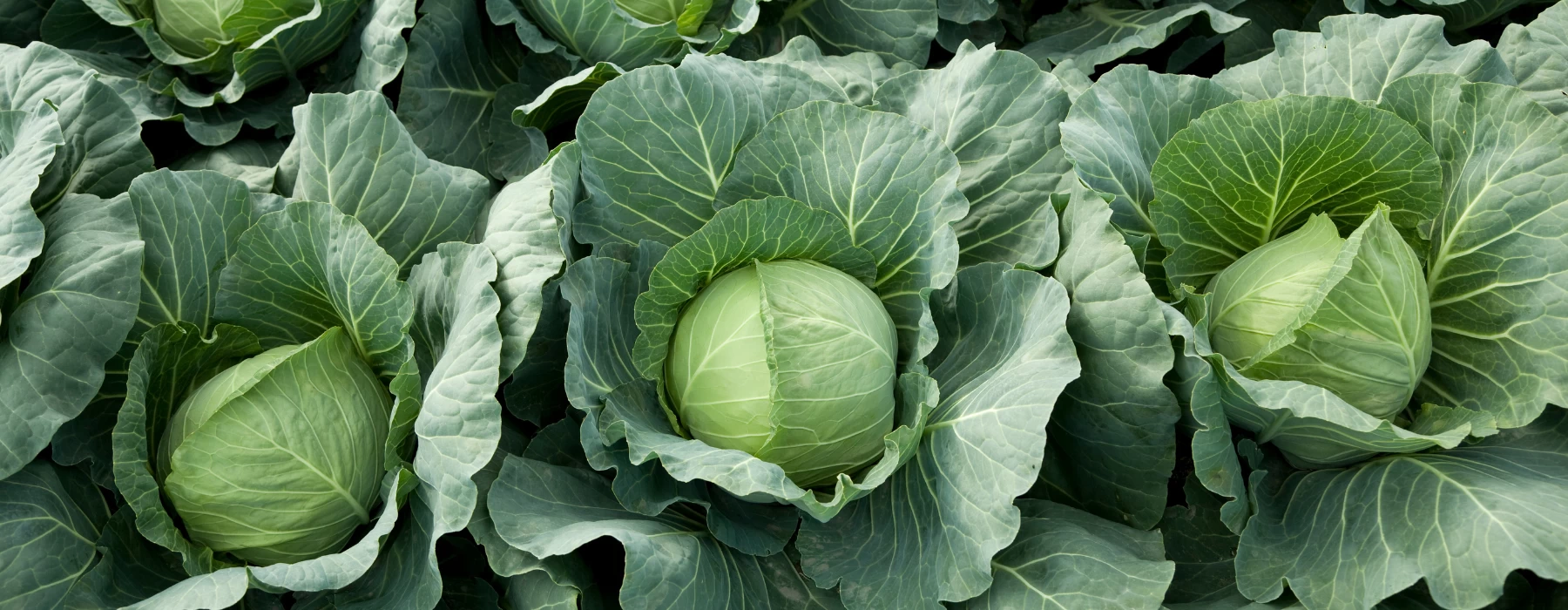Cabbage
Cabbage

Cabbage has an impressive nutrients profile. It belongs to the family of cauliflower, kale, and broccoli. It comes in a variety of colours including red, purple, white, and green. Cabbage is zipped with numerous vitamins and minerals. Nutritional facts of raw cabbage per cup (90 grams):
|
Calories |
22 |
|
Protein |
1 grams |
|
Fiber |
2 grams |
|
Vitamin K |
85% of RDI |
|
Vitamin C |
54% of RDI |
|
Folate |
10% of RDI |
|
Manganese |
7% of RDI |
|
Vitamin B6 |
6% of RDI |
|
Calcium |
4% of RDI |
|
Potassium |
4% of RDI |
|
Magnesium |
3% of RDI |
Some other micronutrients are also found in trace amounts, including Vitamin A, iron and riboflavin. Cabbage is rich in vitamin B6 and folate, both are essential for many important processes of the body, like energy metabolism and proper functioning of the brain. Cabbage is also high in fiber and antioxidants like polyphenols and sulfur compounds. Antioxidants are needed to protect the body from damage of free radicals. When their levels become too high, they can damage your cells. Cabbage is an excellent source of vitamin C, a potent antioxidant that may protect against heart disease, certain cancers and vision loss.
Acute inflammation is a normal response to an injury or infection. chronic inflammation that occurs over a long period of time is associated with many diseases, including heart disease, rheumatoid arthritis and inflammatory bowel disease. Cabbage contains antioxidants which may reduce chronic inflammation. Cabbage is an excellent source of vitamin C. It is needed for collagen formation which provides structure and flexibility to the skin, and is critical for the proper functioning of the bones, muscles and blood vessels. Vitamin C is a powerful antioxidant and needed for absorption of iron. According to various observational studies, a higher intake of vitamin C is linked with a reduced risk of certain cancers, however the results are from controlled studies. Both green and red cabbage are good sources of vitamin C, red cabbage contains 30% more vitamin C.
Cabbage is zipped with a fair amount of fiber. Fiber present is both soluble and insoluble. Insoluble fibers help keep the digestive system healthy by adding bulk to stools and promoting regular bowel movements. Soluble fibers present in cabbage increases the number of beneficial gut bacteria in the gut. These bacterias are involved in protecting the immune system and producing critical nutrients like vitamins K2 and B12. Red cabbage contains plant compounds anthocyanins, which are very powerful antioxidants. Anthocyanins are plant pigments that belong to the flavonoid family. According to various studies, consumption of foods rich in anthocyanins reduced risk of heart disease. Inflammation plays a major role in the development of heart disease, and anthocyanins’ protective effect against it is likely due to their anti-inflammatory qualities.
High blood pressure is the major risk factor associated with heart disease and stroke, a leading cause of mortality and morbidity all over the world. For lowering the blood pressure level, doctors often advise patients with high blood pressure to reduce their salt intake and increase the consumption of potassium. Although it has many functions in the body, the main function is to help regulate blood pressure by counteracting the effects of sodium in the body. Potassium helps in excretion of sodium through urine and also relaxes blood vessel walls, which in turn lowers the blood pressure. Red cabbage is an excellent source of potassium, providing 12% of the RDI in one serving 2-cup. Cabbage are also high in soluble fibers, which is linked with lower LDL cholesterol levels. In the gut, it binds with cholesterol and hinders its absorption into the blood. Cabbage is also zipped with phytosterols.They are plant compounds, structurally similar to cholesterol, and they reduce LDL cholesterol by blocking the absorption of cholesterol in the digestive tract.
Vitamin K is critical for blood clotting. Cabbage is an excellent source of vitamin K1 and vitamin K2. One cup of cabbage contains 85% of the RDI for vitamin K1. Overall cabbage has a very impressive nutrient profile and can be easily incorporated into a diet.
